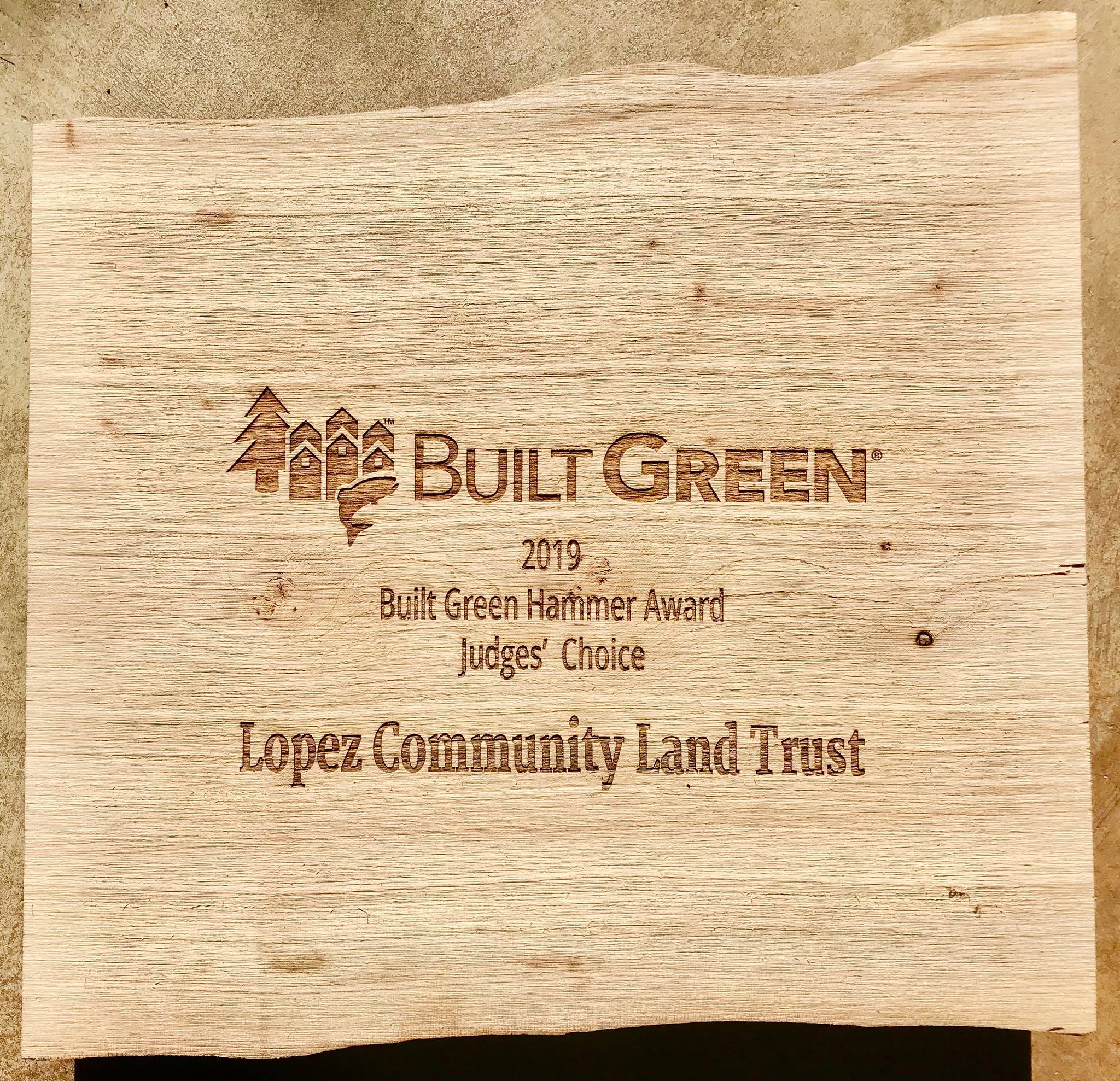Submitted by Lopez Community Land Trust
Lopez Community Land Trust received word that it would be honored with the 2019 Built Green Judges Choice award for the new development of Salish Way net-zero energy cottages. The award was presented at the Master Builders Association’s 2019 Built Green conference held on Sept. 12 near Seattle.
Sandy Bishop, executive director of LCLT, presented at the conference, attended the keynotes and participated in informative workshops. Alex Steffen, a planetary futurist, was one of the keynote speakers. In his opening remarks, he used the word ruggedize. To ruggedize means to produce in a version designed to withstand rough usage. He was referring to our need to ruggedize our built environment in the face of climate disruption.
Most of the participants have thought about all of the built environments that have been pounded by extreme weather events and how little infrastructure remained after the devastating events. Even in the rebuilding, many places have not been ruggedized.
A common question throughout the day was, “Do we really have enough resources let alone the emotional strength to keep going in this cycle of devastation and rebuild?” If our planning process stipulated that certain environs are just too vulnerable to redevelop and that any redevelopment that goes forward must adequately address the drastic changes in climate as forecasted— rather than hoping that the supposed 500-year flood events will simply stop—we would be responding to our times and preparing for the future.
Steffen went on to say that governing in the face of climate disruption is a leadership issue. It will take focus and prioritization and we have to talk about how we spend tax dollars for the good of the whole system. The least costly, most environmentally friendly energy is the energy we never use through conservation measures. If we were to put a price on waste, all economic models would change. Most of our issues today are political in nature and culturally we remain very emotional and reactionary about change.
People often worry that if we have to conserve we will go back to living in caves with no power. But we live in a time where design can create buildings with a 90 percent reduction in energy needs. If we care about the orca whale, then spinning the dam turbines less frequently and allowing more salmon to pass will make a system-wide positive impact. We have everything necessary to live intelligently within our means while protecting the future. We only lack political will.
Greta Thunberg, the 15-year-old from Sweden who is credited with raising global awareness of the risks posed by climate disruption, seems to concur. She said, “I think people should … try to push for a political movement because the politics needed to fix this doesn’t exist today. So I think people as individuals should use the power of democracy to make our voices heard so that people in power cannot continue to ignore this.”
One strong component of the conference was a reminder that whatever each of us can do in our personal lives do it now. Fly less, conserve more, enjoy reading and studying about climate issues and talk with friends and neighbors about this situation — each one doing our part.
Connect with youth, follow their lead, and support politicians who are willing to lead-based on a strong climate response agenda instead of the party they are affiliated with. Act now as if our lives depend upon it. The salmon, the trees, the sea and the orca cannot implement solutions for us, but we can. Let’s do this.




